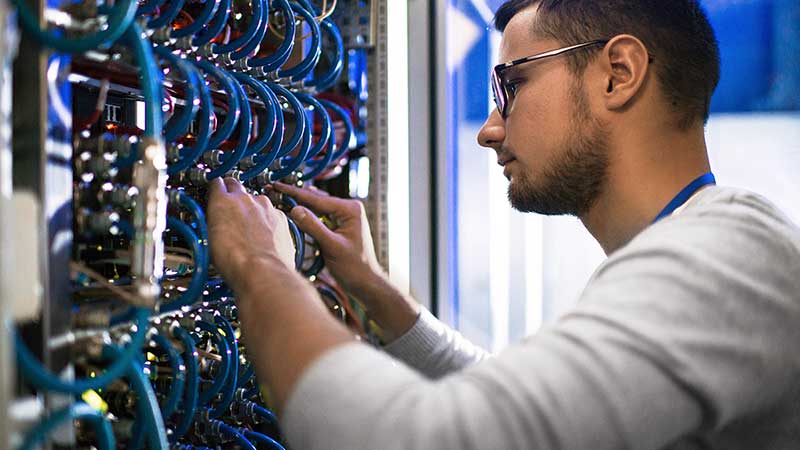
A recent report from the Bureau of Labor Statistics has affirmed one of the already-enduring legacies of the pandemic: If you have a college degree, your work makes you safer from the risks that COVID presents.
The report notes that about 25 percent of Americans were teleworking in August—down from a high point of 35 percent in May. But what’s most interesting is who continues to be shielded from the impacts of direct human interaction that lead to the highest rates of infection. Simply put, Americans with a bachelor’s degree and higher were most likely to be teleworking because of the pandemic—over half of those with an advanced degree and close to 44 percent among those with a bachelor’s degree and higher. Not surprisingly, less than 9 percent of those with only a high school diploma are teleworking, and that’s true of almost no one without a diploma (3 percent).
We know, of course, that there’s no exact correspondence between remote work and education level—not all high-skill workers can work remotely, and not all remote workers are those with high levels of skills. Health care is a dramatic case in point. Many people in these high-skill human work occupations are on the front lines of the pandemic. Indeed, it’s why “essential” workers aren’t just those who occupy the C-suites or managerial positions.
The year 2020 has finally afforded long-overdue recognition to workers who are indispensable to the economy and society. But it is inescapable that many of these workers are in low-skill occupations—grocery store clerks, warehouse workers, delivery drivers, cleaners, and long-distance truckers, to name just a few.
It would be a very good thing indeed if the pandemic prompted more tangible evidence that society appreciates these essential workers—including more stable working conditions, guaranteed availability of health care, and higher pay. But for that to happen, we must recognize this national crisis is an inflection point.
As important and underappreciated as their roles may be, the fact is that the pandemic is likely to further undermine their employment opportunities. We should take this moment to rebuild the economy for those who have been subjected to less safe, less secure, “essential” work. We should give them more and better tools for higher-paying, more secure jobs, while also offering them learning opportunities and life skills that elevate their human traits and capabilities.
Pandemics, wars, and other existential threats often redefine essential vs. nonessential work. We saw that with World War II when Rosie the Riveter helped foster a new appreciation for the role of women in American ingenuity, productivity, and economic growth. Today, COVID may show us the path toward a new understanding of essential work and may hasten the shift to a more human-centered economy.
Jamie Merisotis is president and CEO of Lumina Foundation and author of the book “Human Work in the Age of Smart Machines,” which will be published Oct. 6.
